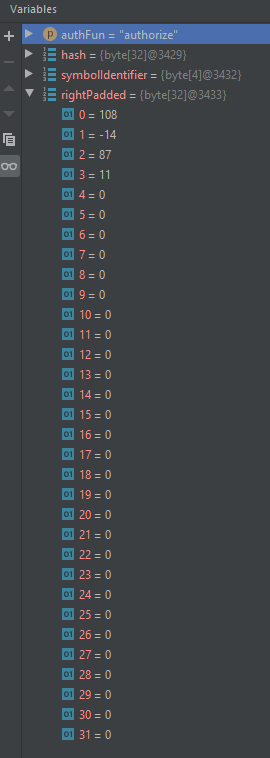No, the TX hash is not enough, but that would be th_... you provided a (serialized and encoded) transaction which is exactly what I asked for (with a couple of extra serializations).
The Tx deserialized is:
{aetx,ga_attach_tx,aega_attach_tx,319,
#ga_attach_tx{owner_id = {id,account,
<<25,254,170,57,246,81,191,211,255,80,48,210,236,243,48,
184,246,64,77,203,48,83,157,99,37,180,40,15,145,113,46,
9>>},
nonce = 1,
code = <<248,176,70,3,160,170,155,134,163,66,188,216,70,
212,131,3,77,44,99,225,183,72,99,183,154,146,182,
149,254,29,148,145,211,51,66,70,23,192,184,131,
184,85,254,68,214,68,31,0,55,1,71,0,55,0,26,6,
130,0,1,3,63,254,70,103,19,160,0,55,2,151,64,7,
151,64,12,1,0,12,1,2,39,12,4,29,0,0,254,108,242,
87,11,0,55,1,7,23,119,0,8,60,2,4,251,3,77,78,111,
116,32,105,110,32,65,117,116,104,32,99,111,110,
116,101,120,116,1,3,255,168,47,3,17,68,214,68,31,
17,105,110,105,116,17,70,103,19,160,29,116,111,
95,115,105,103,110,17,108,242,87,11,37,97,117,
116,104,111,114,105,122,101,130,47,0,133,52,46,
51,46,48,0>>,
auth_fun = <<108,239,191,189,87,11,0,0,0,0,0,0,0,0,0,0,0,
0,0,0,0,0,0,0,0,0,0,0,0,0,0,0,0,0>>,
call_data = <<43,17,68,214,68,31,27,159,0,160,25,254,170,
57,246,81,191,211,255,80,48,210,236,243,48,
184,246,64,77,203,48,83,157,99,37,180,40,15,
145,113,46,9>>,
ct_version = #{abi => 3,vm => 5},
fee = 81400000000000,gas = 4800000,gas_price = 1000000000,
ttl = 0}}
So the auth_fun field doesn’t look right, and doesn’t match what you wrote… It should be <<108, 242, 87, 11, 0, 0, ...>> my guess is you are using a stupid language that mixes up bytes and signed bytes? The contract looks good, and with the right auth_fun I think it will work.



